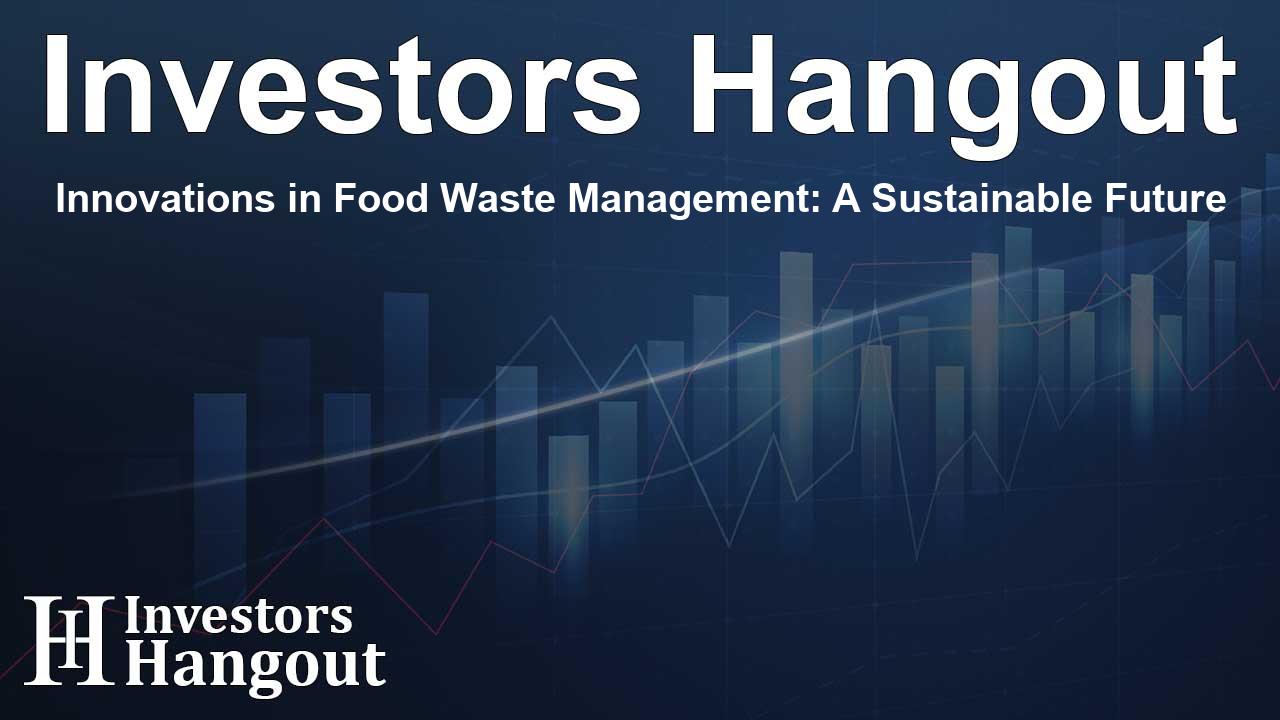Innovations in Food Waste Management: A Sustainable Future

Exploring the Growth of the Food Waste Management Market
The food waste management market is making substantial strides, with a projected increase from USD 77.63 billion in 2024 to a remarkable USD 132.17 billion by 2034. This upward trajectory is significantly influenced by the growing embrace of sustainable solutions and advancements in technology.
Awareness regarding sustainability has gained momentum among consumers, leading to heightened concern over environmental impact. Individuals and organizations alike are becoming increasingly proactive in reducing food waste through innovative solutions, regulation, and technology adoption.
Key Drivers in the Expansion of the Market
Sustainability Initiatives
Governments worldwide are introducing stringent regulations to promote sustainability. These policies encourage businesses to invest in technologies for food waste management, significantly enhancing the market's growth. For instance, programs that mandate recycling and composting of organic waste are shaping the landscape, compelling stakeholders to align with regulatory requirements.
Technological Advancements
Technological innovations are at the forefront of this market's growth. Solutions such as smart bins equipped with IoT sensors enable real-time monitoring of waste, while AI-driven analytics provide insights into waste generation patterns. These advancements help businesses optimize resources and minimize waste, noteworthy trends contributing to sustainability.
Market Segmentation Overview
The food waste management market can be segmented into several categories based on solutions, end users, technology, and business models.
By Solution Type
Collection and logistics operations remain dominant, capturing a significant market share. This segment includes municipal and commercial hauling services. Government support in managing waste collections is pivotal for ensuring efficient disposal methods.
By End User
Municipalities and government programs lead the market, underscoring their essential role in the efficient management of food waste. Innovative practices adopted include mandatory composting policies and public-private partnership initiatives.
Emerging Trends in Food Waste Management
Focus on Resource Conversion
The emphasis on turning waste into valuable resources, such as energy and compost, is reshaping the market. Companies are now prioritizing effective waste management strategies that convert surplus food into energy—an essential shift toward circular economy practices.
Collaboration and Awareness
There is a growing trend of collaboration among NGOs, businesses, and governments to redirect surplus food. This collaborative effort to alleviate hunger by redistributing food is a commendable approach, emphasizing social responsibility in waste management.
Recent Developments in the Industry
Noteworthy partnerships have emerged in the sector. For example, a recent collaboration between major companies aims to explore converting food waste into renewable energy sources. Such initiatives showcase innovative approaches in tackling food waste effectively while promoting sustainability.
Future Outlook
The forecasted growth of the food waste management market signifies an optimistic outlook for stakeholders engaged in sustainable practices. The push towards technological adoption, combined with robust government support, ensures a thriving ecosystem for continued development in the coming years.
Frequently Asked Questions
What is the expected growth of the food waste management market?
The market is projected to grow from USD 77.63 billion in 2024 to USD 132.17 billion by 2034.
What factors drive this market's growth?
Key drivers include sustainability awareness, governmental regulations, and technological advancements for waste management.
How are technologies impacting food waste management?
Technologies such as smart bins and AI analytics are enhancing efficiencies and optimizing waste management solutions.
What roles do municipalities play in this market?
Municipalities are pivotal in developing and implementing waste management policies, promoting recycling, and enhancing public awareness.
What sustainable practices are anticipated to grow in the future?
Expect an increase in collaborations focused on food redistribution and technological innovations aimed at minimizing waste through renewable resource conversion.
About The Author
Contact Thomas Cooper privately here. Or send an email with ATTN: Thomas Cooper as the subject to contact@investorshangout.com.
About Investors Hangout
Investors Hangout is a leading online stock forum for financial discussion and learning, offering a wide range of free tools and resources. It draws in traders of all levels, who exchange market knowledge, investigate trading tactics, and keep an eye on industry developments in real time. Featuring financial articles, stock message boards, quotes, charts, company profiles, and live news updates. Through cooperative learning and a wealth of informational resources, it helps users from novices creating their first portfolios to experts honing their techniques. Join Investors Hangout today: https://investorshangout.com/
The content of this article is based on factual, publicly available information and does not represent legal, financial, or investment advice. Investors Hangout does not offer financial advice, and the author is not a licensed financial advisor. Consult a qualified advisor before making any financial or investment decisions based on this article. This article should not be considered advice to purchase, sell, or hold any securities or other investments. If any of the material provided here is inaccurate, please contact us for corrections.
